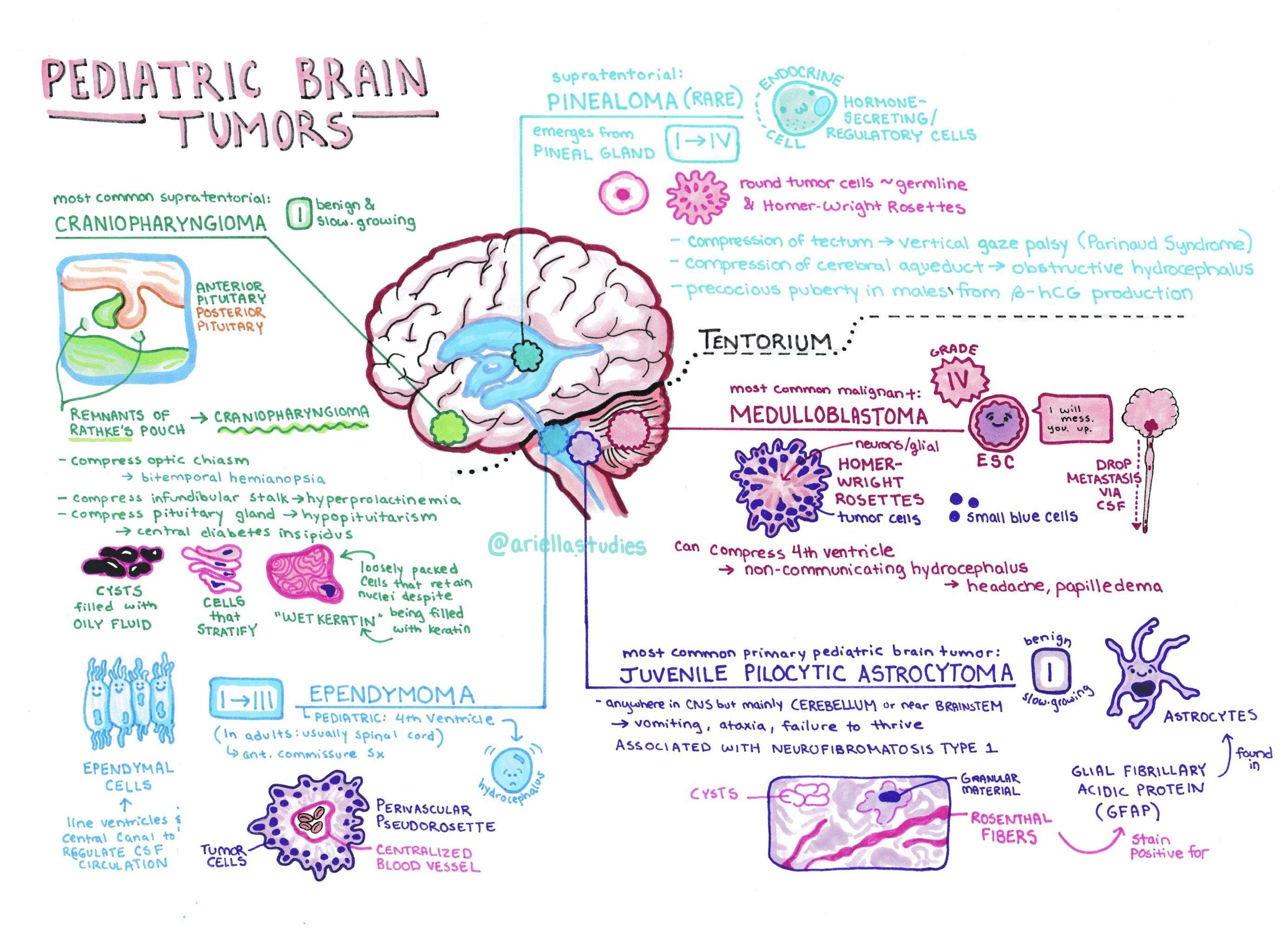Pediatric brain cancer, particularly in the form of gliomas, poses a significant challenge for younger patients and their families. Recent advancements in AI in cancer prediction have opened new doors for accurately assessing the risk of cancer relapse in children undergoing treatment. A groundbreaking Harvard study revealed that an AI tool trained to analyze temporal sequences of brain scans can predict relapse risk with an accuracy that far surpasses traditional methods. This innovative approach not only aims to improve the outcomes for children with malignant brain tumors but also alleviates the emotional toll of frequent imaging required for monitoring. With ongoing research focused on optimizing brain tumor treatment, we are taking vital steps towards ensuring better healthcare for pediatric patients facing this daunting diagnosis.
Childhood brain tumors, specifically the category known as pediatric gliomas, remain a complex medical concern that necessitates careful monitoring and treatment. With innovative techniques like temporal learning in medicine, researchers are exploring ways to enhance cancer relapse prediction through the use of advanced AI technology. This approach serves to recognize subtle changes in the patient’s condition over time, thereby improving the efficiency of brain tumor treatment strategies. As medical professionals strive to reduce the burden of repeated imaging, these advancements promise to foster a more supportive experience for young patients and their families. Ultimately, the evolution of predictive models in pediatric brain cancer care signifies a pivotal move towards personalized medicine.
Introduction to Pediatric Brain Cancer
Pediatric brain cancer primarily involves tumors that occur in the brain tissue of children, with gliomas being one of the most common types. The diagnosis of brain tumors in children can be devastating, impacting not only the child’s health but also the emotional and psychological well-being of their families. Early detection and treatment are crucial in enhancing survival rates and reducing potential complications associated with these tumors.
Advancements in technology, particularly the use of artificial intelligence (AI) in cancer prediction, are transforming how pediatric brain cancer is diagnosed and managed. These enhancements provide healthcare providers with powerful tools to predict cancer relapse risk and improve patient outcomes.
Frequently Asked Questions
How is AI used in pediatric brain cancer prediction?
AI is revolutionizing pediatric brain cancer prediction by analyzing multiple brain scans over time. Recent studies have shown that AI tools can predict the risk of relapse in pediatric patients with more accuracy than traditional methods, leading to improved care and outcomes.
What are pediatric gliomas and their treatment options?
Pediatric gliomas are brain tumors that occur in children and are often treatable with surgery alone. However, some cases can lead to recurrence, making predictive tools crucial for identifying at-risk patients and managing treatment options effectively.
How can AI improve cancer relapse prediction for pediatric brain tumors?
AI enhances cancer relapse prediction for pediatric brain tumors by employing techniques like temporal learning, which uses data from multiple scans over time. This allows for better identification of subtle changes that may indicate a risk of relapse, thus improving patient management.
What does temporal learning mean in the context of pediatric brain cancer?
In pediatric brain cancer research, temporal learning refers to an AI technique that analyzes sequences of brain scans over time to identify patterns and predict cancer recurrence more accurately than single-scan evaluations.
What is the significance of the research conducted at Mass General Brigham involving pediatric brain cancer?
The significance of the Mass General Brigham study lies in its demonstration that AI can successfully predict relapse risk in pediatric brain cancer patients, particularly those with gliomas. This could lead to advancements in treatment protocols and personalized care.
How often do pediatric patients undergo imaging for brain cancer follow-up?
Pediatric patients with brain tumors, such as gliomas, typically undergo frequent follow-up imaging, often using MRI scans. This is essential for monitoring potential relapse, but the process can be stressful for both children and families.
What are the challenges in predicting cancer relapse in pediatric patients?
Challenges in predicting cancer relapse in pediatric patients include the variability of tumor behavior, the psychological burden of frequent imaging, and the limitations of traditional prediction methods, which may not provide timely or accurate risk assessments.
What are the potential benefits of AI in treating pediatric brain tumors?
The potential benefits of AI in treating pediatric brain tumors include improved accuracy in predicting relapse, the ability to tailor follow-up care based on individual risk, and the possibility of introducing preventive treatment for high-risk patients, all contributing to better long-term outcomes.
| Key Point | Description |
|---|---|
| AI Prediction of Relapse | An AI tool predicts relapse risk in pediatric brain cancer patients with greater accuracy than traditional methods. |
| Study Background | Conducted by Mass General Brigham and published in The New England Journal of Medicine AI. |
| Temporal Learning Technique | This method utilizes multiple MR scans taken over time to identify subtle changes indicative of cancer recurrence. |
| Accuracy of AI Model | The AI model achieved 75-89% accuracy in predicting recurrence, outperforming single scan predictions which were about 50%. |
| Clinical Implications | The AI predictions may lead to improved care by reducing unnecessary imaging for low-risk patients or enabling early treatment for high-risk patients. |
Summary
Pediatric brain cancer is a critical focus of ongoing medical research, particularly regarding the prediction and management of relapse risks. A recent study has shown that AI tools can significantly enhance the prediction of recurrence in pediatric brain cancer patients, specifically gliomas. By utilizing a novel temporal learning approach, the AI can analyze multiple MRI scans over time, improving the accuracy of relapse predictions compared to traditional single-scan methods. This advancement holds the potential to transform care strategies for children with brain tumors, highlighting the need for further research and clinical trials to validate these findings.

